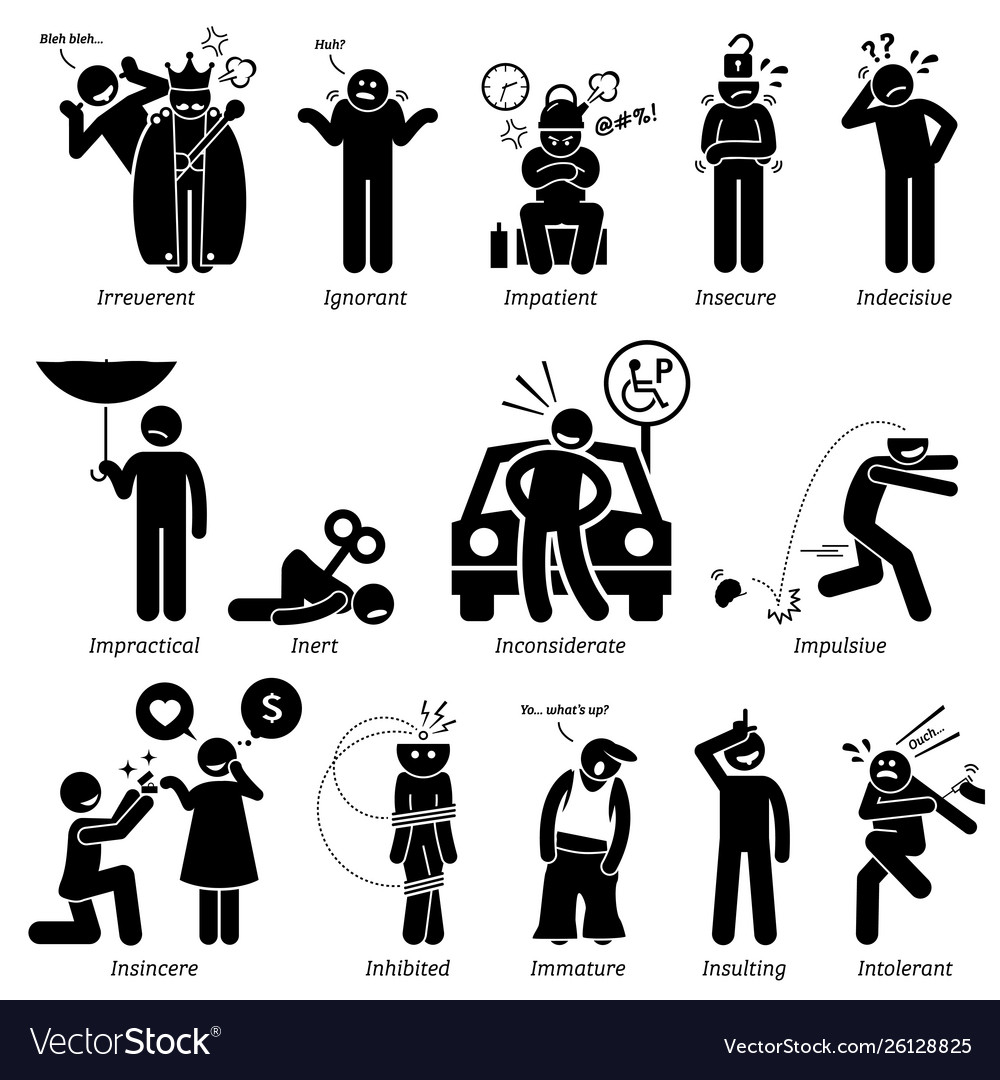
Quick to anger: a person who's quick to anger may become upset due to a trigger that would offend most people.Not all conflict is bad, but being argumentative for the sake of arguing can be detrimental. For example, a person may look for flaws in a family member's idea and attempt to rile them into a fight. Argumentativeness: a person who is argumentative may get joy or pleasure from starting arguments.For example, a picky eater may refuse to eat a meal you cooked for them because they haven't tried a key ingredient before. Pickiness: a person who is picky may struggle in situations that are new, outside their comfort zone, or don't match their standards.For example, someone with recklessness may encourage you to undertake a dangerous activity. Recklessness: a person who is reckless may not consider the danger their actions place upon themselves or others.For example, a cynical person may assume that a polite server was only friendly for a good tip. Cynicism: a person who displays cynicism may think that interests and goals motivate people to the detriment of others.For example, a leader that lacks empathy may not notice that one of their employees is struggling to complete work because they are tired. A lack of empathy for others: a person who lacks empathy for others may struggle to understand other people's feelings and thoughts.For example, someone may talk to a server without saying "please" or "thank you." Rudeness: a person who displays rude behavior may speak or act without manners that most people would define as culturally appropriate.

For example, an employee may struggle to adapt when a new boss joins your team and changes the team dynamic.

Judgmentalness: a person who is judgmental may judge situations, people, or events without experience.They may frequently complain, ruin the fun, or dampen people's spirits with defeatist comments and actions. Negativity: a person with negativity may see the world as cold, cruel, and evil.Let's discuss 25 toxic traits and behaviors and their warning signs. You may not recognize them straight away when you encounter toxic behaviors in a relationship. Many people's toxic traits come out in subtle ways. If you saw someone throwing a chair through a window, you might think, "They have the toxic trait of anger." But not all toxic personality traits manifest so obviously. Let’s take a look at many examples of toxic traits.

Behaviors can be characterized as “healthy” or “unhealthy.” Unhealthy, or toxic, behaviors include:

When people talk about toxic traits, they aren’t usually talking about traits of a person - the term instead refers to a person’s behavior. For example, a person’s level of “openness” is a trait. Behaviors, on the other hand, are actions we have control over. When discussing traits, we need to draw a line between a "trait" and "behavior." Traits are often innate. While they usually stay the same, traits can change over time due to factors like: For example, a person’s level of introversion or extroversion is a trait. A personality trait is a characteristic that influences how a person thinks, feels, and acts.


 0 kommentar(er)
0 kommentar(er)
